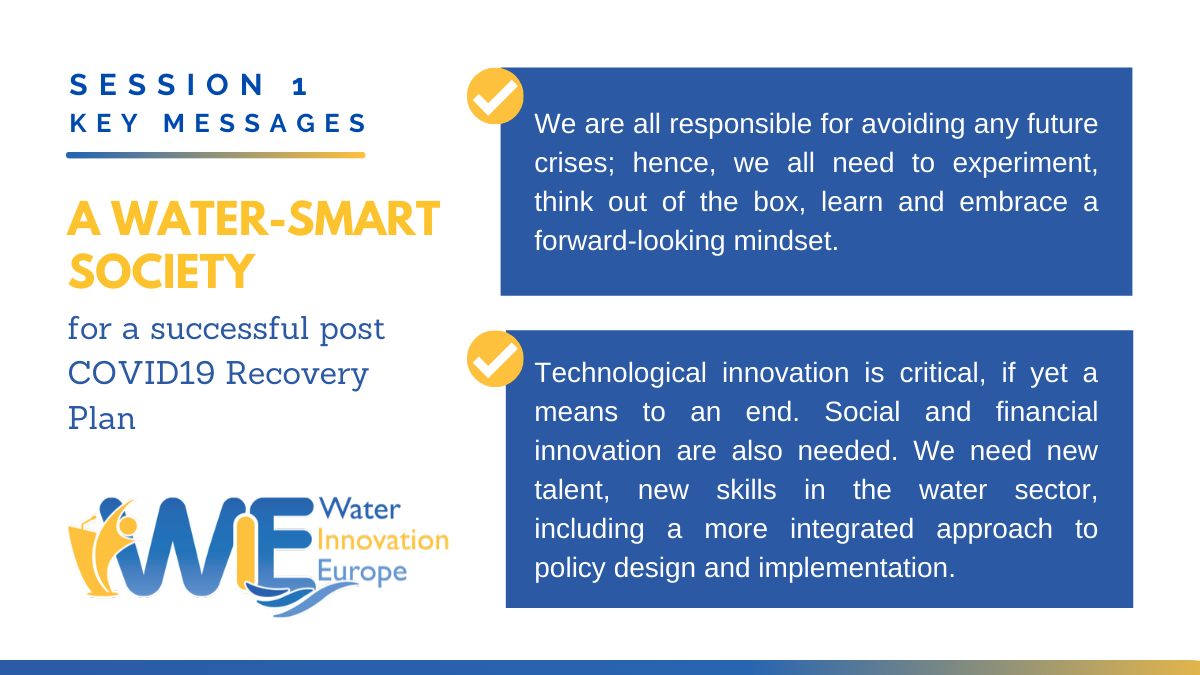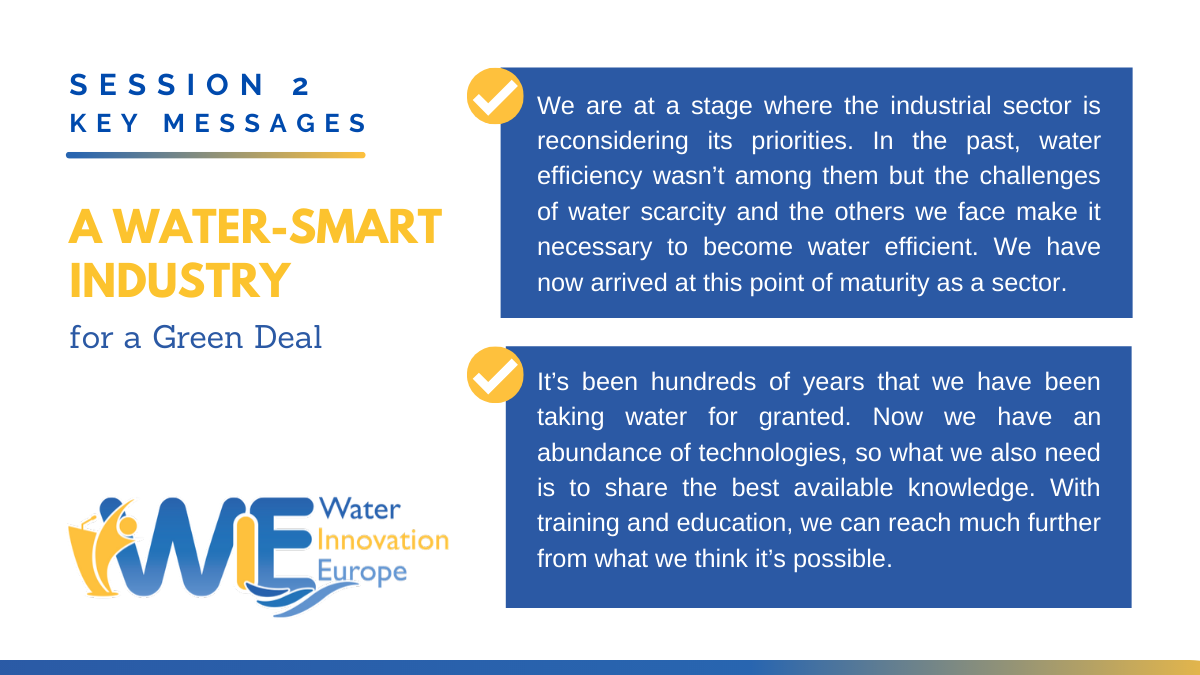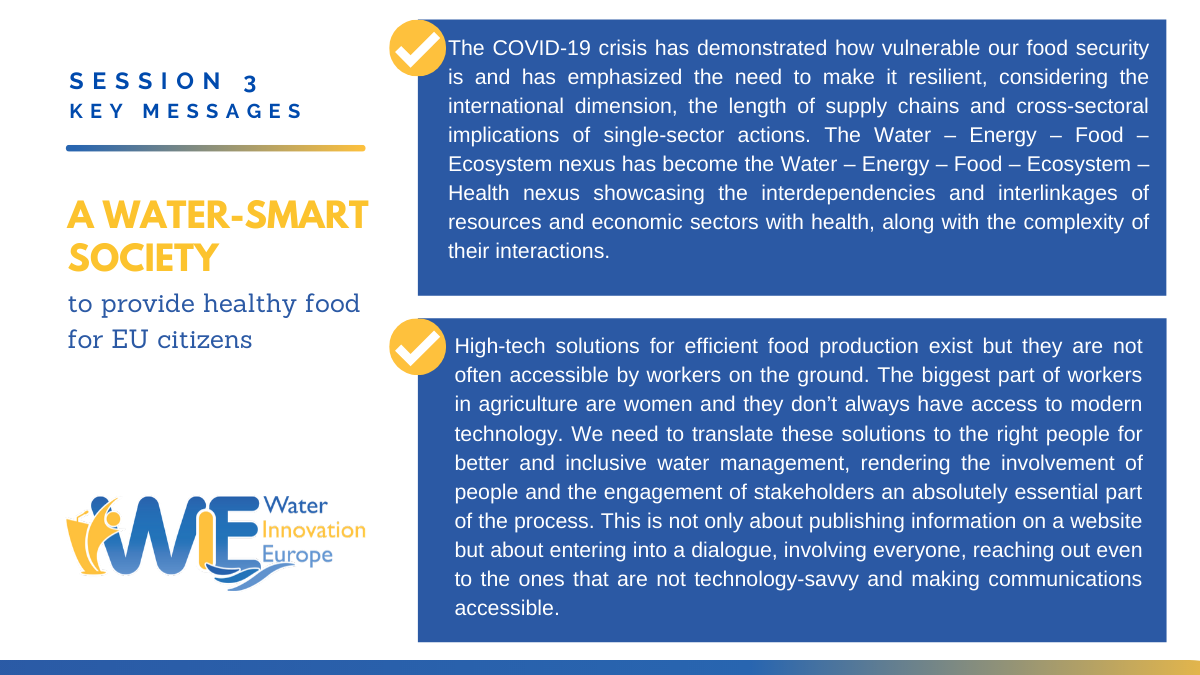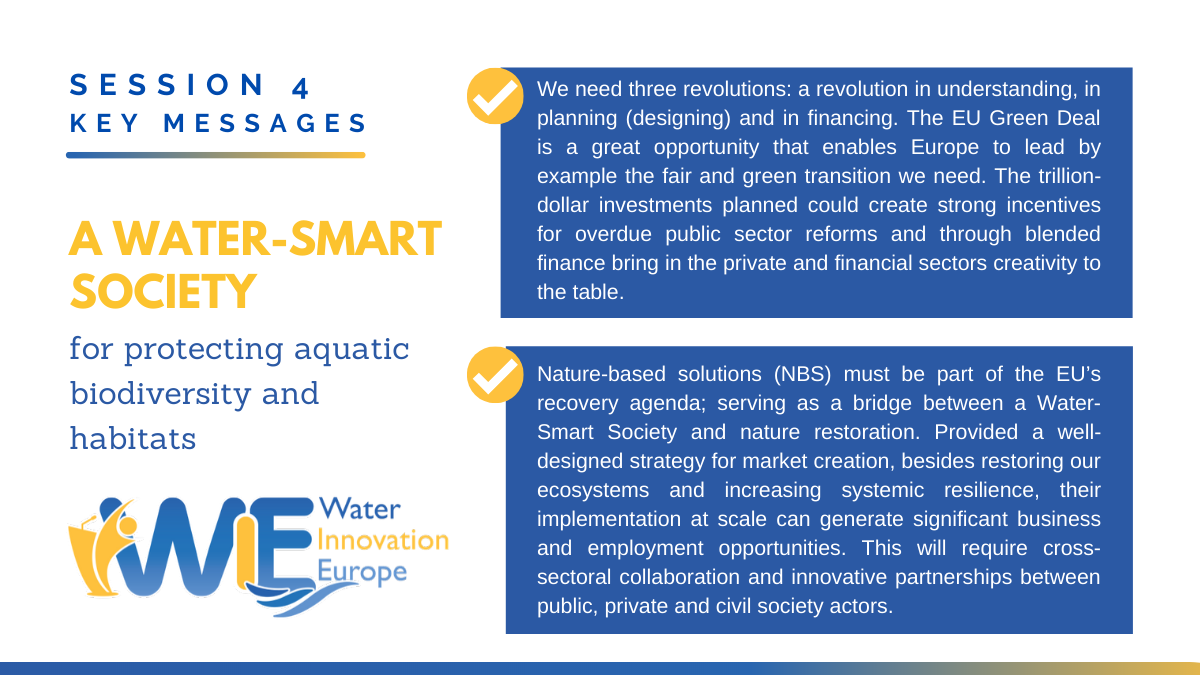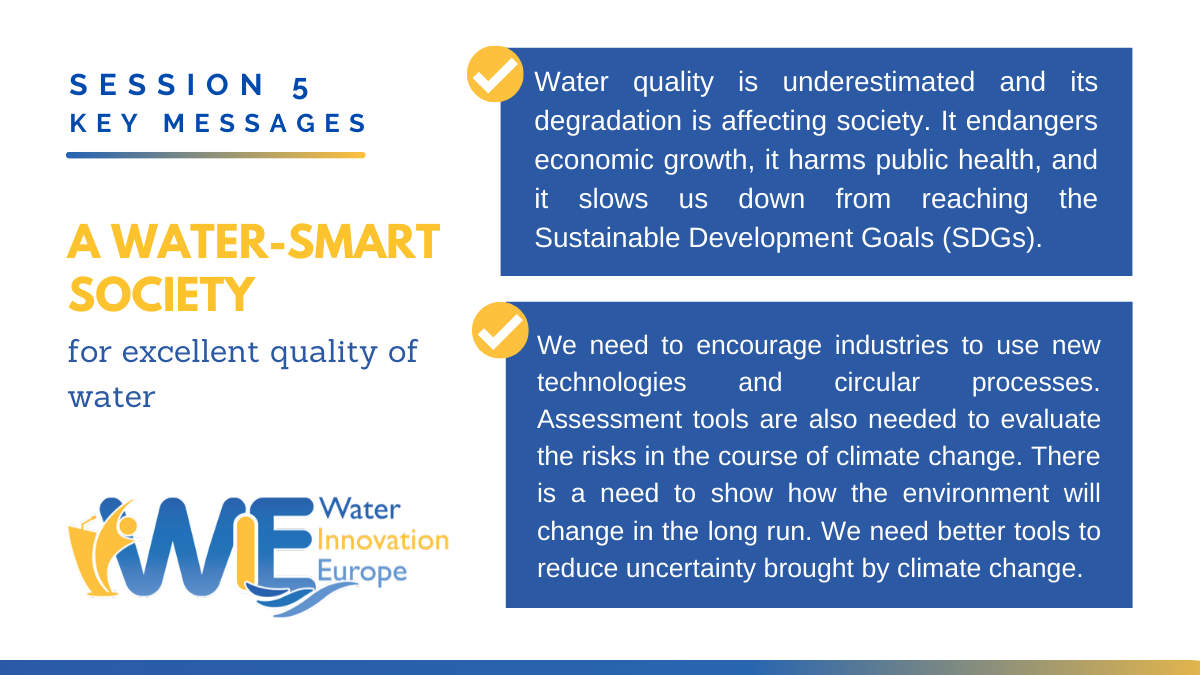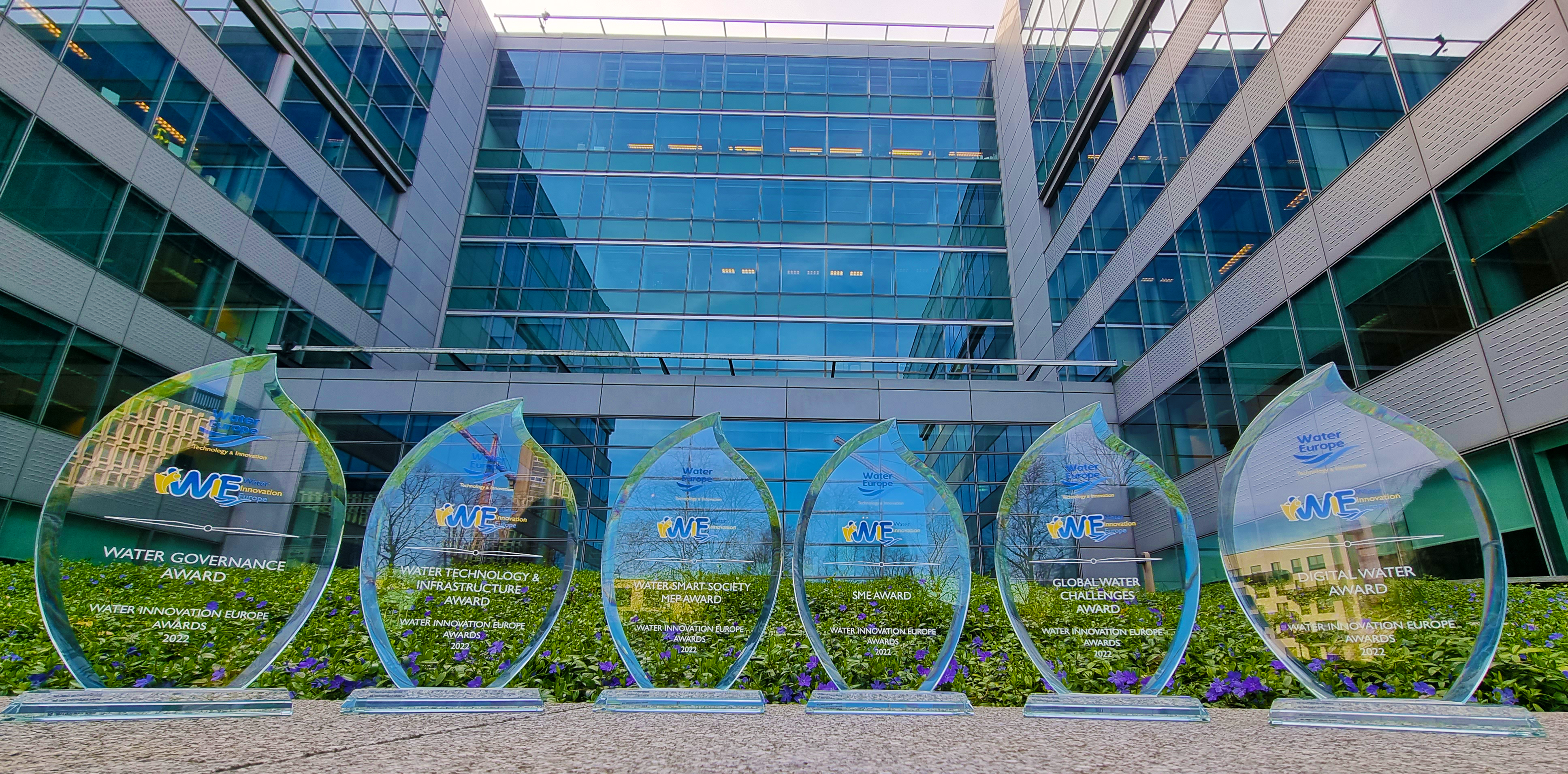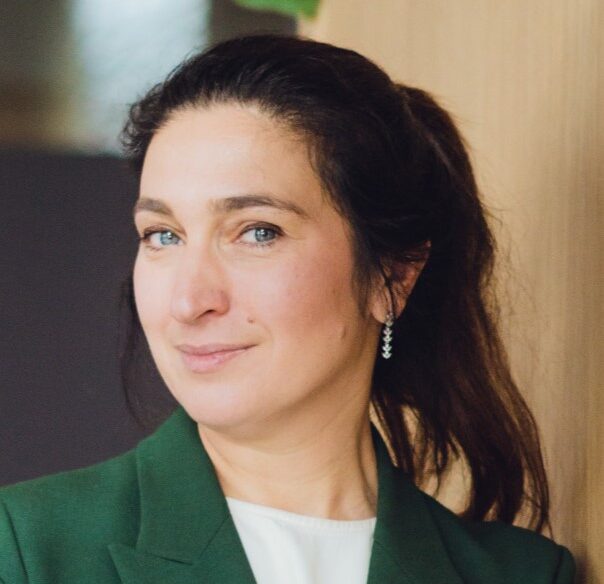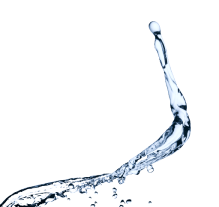Under the title ‘A Water-Smart Society For A Post-COVID19 Green Deal’, Water Innovation Europe 2020 concluded with success on the 26th of June. We have compiled the key messages of each session. Have a look at them below:
Session 1: A Water-Smart Society for a successful Post COVID19 Recovery Plan
- We are all responsible for avoiding any future crises; hence, we all need to experiment, think out of the box, learn and embrace a forward-looking mindset.
- Technological innovation is critical, if yet a means to an end. Social and financial innovation are also needed. We need new talent, new skills in the water sector, including a more integrated approach to policy design and implementation.
Session 2: A Water-Smart Industry for a Green Deal
- We are at a stage where the industrial sector is reconsidering its priorities. In the past, water efficiency wasn’t among them but the challenges of water scarcity and the others we face make it necessary to become water efficient. We have now arrived at this point of maturity as a sector.
- It’s been hundreds of years that we have been taking water for granted. Now we have an abundance of technologies, so what we also need is to share the best available knowledge. With training and education, we can reach much further from what we think it’s possible.
Session 3: A Water-Smart Society to provide healthy food for EU citizens
- The COVID-19 crisis has demonstrated how vulnerable our food security is and has emphasized the need to make it resilient, considering the international dimension, the length of supply chains and cross-sectoral implications of single-sector actions. The Water – Energy – Food – Ecosystem nexus has become the Water – Energy – Food – Ecosystem – Health nexus showcasing the interdependencies and interlinkages of resources and economic sectors with health, along with the complexity of their interactions.
- High-tech solutions for efficient food production exist but they are not often accessible by workers on the ground. The biggest part of workers in agriculture are women and they don’t always have access to modern technology. We need to translate these solutions to the right people for better and inclusive water management, rendering the involvement of people and the engagement of stakeholders an absolutely essential part of the process. This is not only about publishing information on a website but about entering into a dialogue, involving everyone, reaching out even to the ones that are not technology-savvy and making communications accessible.
Session 4: A Water-Smart Society for protecting aquatic biodiversity and habitats
- We need three revolutions: a revolution in understanding, in planning (designing) and in financing. The EU Green Deal is a great opportunity that enables Europe to lead by example the fair and green transition we need. The trillion-dollar investments planned could create strong incentives for overdue public sector reforms and through blended finance bring in the private and financial sectors creativity to the table.
- Nature-based solutions (NBS) must be part of the EU’s recovery agenda; serving as a bridge between a Water-Smart Society and nature restoration. Provided a well-designed strategy for market creation, besides restoring our ecosystems and increasing systemic resilience, their implementation at scale can generate significant business and employment opportunities. This will require cross-sectoral collaboration and innovative partnerships between public, private and civil society actors.
Session 5: A Water-Smart Society for excellent quality of water
- Water quality is underestimated and its degradation is affecting society. It endangers economic growth, it harms public health, and it slows us down from reaching the Sustainable Development Goals (SDGs).
- We need to encourage industries to use new technologies and circular processes. Assessment tools are also needed to evaluate the risks in the course of climate change. There is a need to show how the environment will change in the long run. We need better tools to reduce uncertainty brought by climate change.
